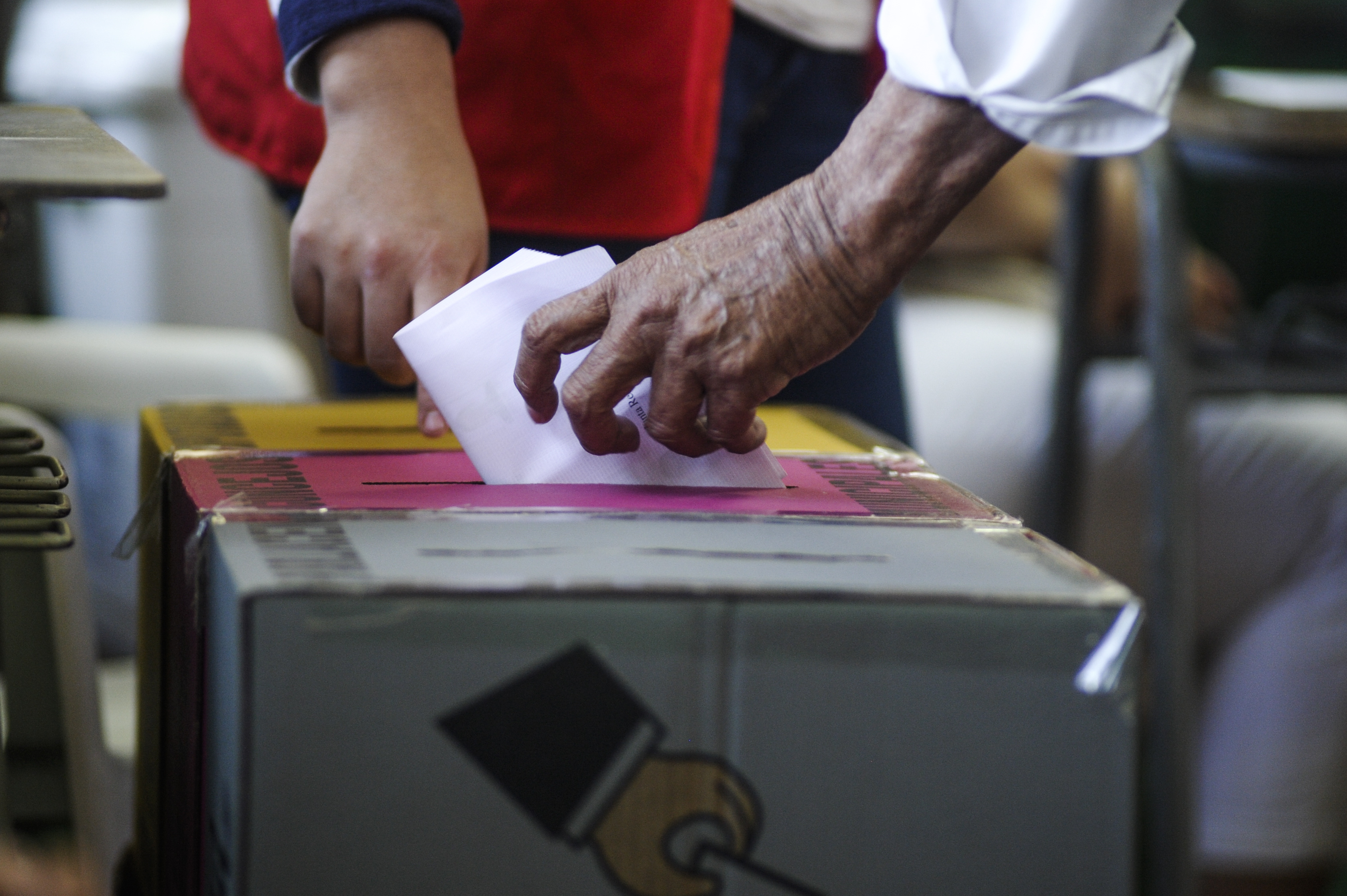Elections
Is El Salvador on the path to an authoritarian regime?

Am 4. Februar treten mit dem amtierenden Präsidenten, der den Umfragen nach zwischen 70% und 80% der abzugebenden Stimmen auf sich vereinen könnte, 5 weitere Kandidaten mit geringer Unterstützung an
© picture alliance / ZUMAPRESS.com | Camilo FreedmanThe Candidates
On February 4, the current president, who could garner between 70% and 80% of the votes according to polls, will face five other candidates – all with low support and polling below 5% in Salvadorans' voting intentions. Whoever obtains 51% of the votes in the February 4th election will govern El Salvador until 2029. If no candidate achieves this result, there will be a runoff. 6.2 million Salvadorans are eligible to vote.
The not very charismatic Manuel Flores, co-founder of the left-wing Farabundo Martí National Liberation Front (FMLN), is running for president. On the right, the Republican Nationalist Alliance (ARENA) has Joel Sánchez as its candidate, focusing on improving education through technology, boosting the economy, building hospitals and helping the population without engaging in conflicts. Luis Parada, from the civil society-derived party Nuestro Tiempo, aims to stimulate the economy, create better jobs, improve healthcare and education access as well as combat corruption.
President Nayib Bukele remains the ultimate hope, charismatic and capable of outshining candidates from the political establishment. Since the end of the 1992 civil war, both FMLN and ARENA had ruled the country with corrupt structures. Even during Bukele's tenure, opposition parties have not renewed, and the current president has portrayed them as corrupt entities of the past that need to be fought against, denying them a majority in parliament.
But this time, the president had to be extra cautious, leading an intensive campaign to mobilize his supporters. His concern might be that Salvadorans, confident of his victory, might not show up at the polls, potentially leading to a lack of an overwhelming majority and legitimacy for him.

Präsident Nayib Bukele ist, wie schon 2019 weiterhin der Hoffnungsträger schlechthin, jung, charismatisch und in der Lage sich gegen die Kandidaten des politischen Establishments durchzusetzen
© picture alliance / ASSOCIATED PRESS | Salvador MelendezWhat makes Nayib Bukele so popular?
The discourse against the entrenched political elites resonates with the president's potential voters, as the population had not seen an improvement in their living conditions for years. The young president skillfully implements his populist promises. The significant reduction in crime, with over 50,000 members of criminal gangs suddenly arrested and held in high-security prisons, has left an impression on the majority of citizens. This has resulted in improved security, with over 90% of the population supporting this tough approach, which Bukele promises to continue in his next term. However, his supporters ignore Bukele’s authoritarian tendencies, the disregard for the rule of law through the prolonged state of emergency for almost two years, allowing arbitrary arrests of criminals or even political opponents, and the human rights abuses in detention conditions.
The economy is recovering significantly after the pandemic. While El Salvador experienced a negative growth of -7.9% in 2020, the economy rebounded in 2021 with a growth rate of 11.2%, reaching the 2019 level in 2022 with a growth of 2.6%. A growth of over 3% is expected for 2024. The improved security situation is attractive for investors and has revived tourism, which had been stagnant for a long time due to insecurity. The Bukele government successfully reduced the budget deficit from 10% to 2%.
However, less positive results can be observed after the introduction of Bitcoin in September 2021. The argument of financial inclusion, which Bukele used to emphasize, is not a reality for most Salvadorans. About 70% of Chivo Wallet (digital wallet) users downloaded only the government-provided Bitcoin starter balance (30 USD) and did not conduct any further Bitcoin transactions. It should be noted that only 65% of the population owns a smartphone, and only 20% of businesses use Bitcoin in their daily operations.
Looking at the numbers of migrants registered at the US border, the years 2019, 2020, and 2021 show the highest numbers in the last 10 years. A slight decrease in the monthly count of migrants has been observed since the second half of 2022. However, too many people – around 140 individuals daily in 2023 – are still leaving their homes in the hope of a prosperous life in the USA. They may not have yet benefited from the positive economic development following the improvement in the security situation and choose the arduous journey north.

Ein Wandgemälde mit dem Bild des salvadorianischen Präsidenten Nayib Bukele schmückt ein Wohnhaus im Stadtteil Zacamil in San Salvador
© picture alliance / ASSOCIATED PRESS | Moises CastilloThe meticulously prepared path to an authoritarian regime
The government's highly effective propaganda machinery, including the state newspaper „Diario El Salvador“ founded in 2020 and the use of social media, successfully sell Nayib Bukele's decision-making. With the justification of promoting state efficiency, loyal deputies (57 out of 84) passed a law reducing the number of parliamentary seats from 84 to 60 and the number of municipalities from 262 to 44, concentrating power and limiting pluralism.
The president has had a majority in parliament since 2021, enabling him to dismiss members of the Supreme Court and the Attorney General and appoint loyal officials. Other judges in the judiciary were also retired early. The cut in the separation of powers, closely observed with concern by the international community at the time, is now a reality – Bukele controls all branches of the government. Predictions indicate that 57 deputies from the Nuevas Ideas (New Ideas) party and 3 opposition deputies will govern the legislature. There are no predictions for municipal elections, but the reduction in municipalities will likely favor the incumbent president.
President Nayib Bukele is expected to be re-elected on February 4, 2024. Although the constitution does not allow for immediate re-election, Bukele took a leave of absence three months before the election, formally leaving office, smoothly conducting his campaign, and allowing himself to be re-elected. He has paved the way for this re-election and, consequently, towards an authoritarian regime step by step since taking office in 2019, disregarding the separation of powers, the rule of law, and human rights. Once again, a head of state in the Central American region is expected to be re-elected through elections – a democratic instrument – while the risk of an increasingly radical authoritarian regime is evident. The international community must become more visible in this context; such a development cannot be silently accepted. The consequences of such observation can be seen in the alarming transformation of Nicaragua into a brutal dictatorship.
